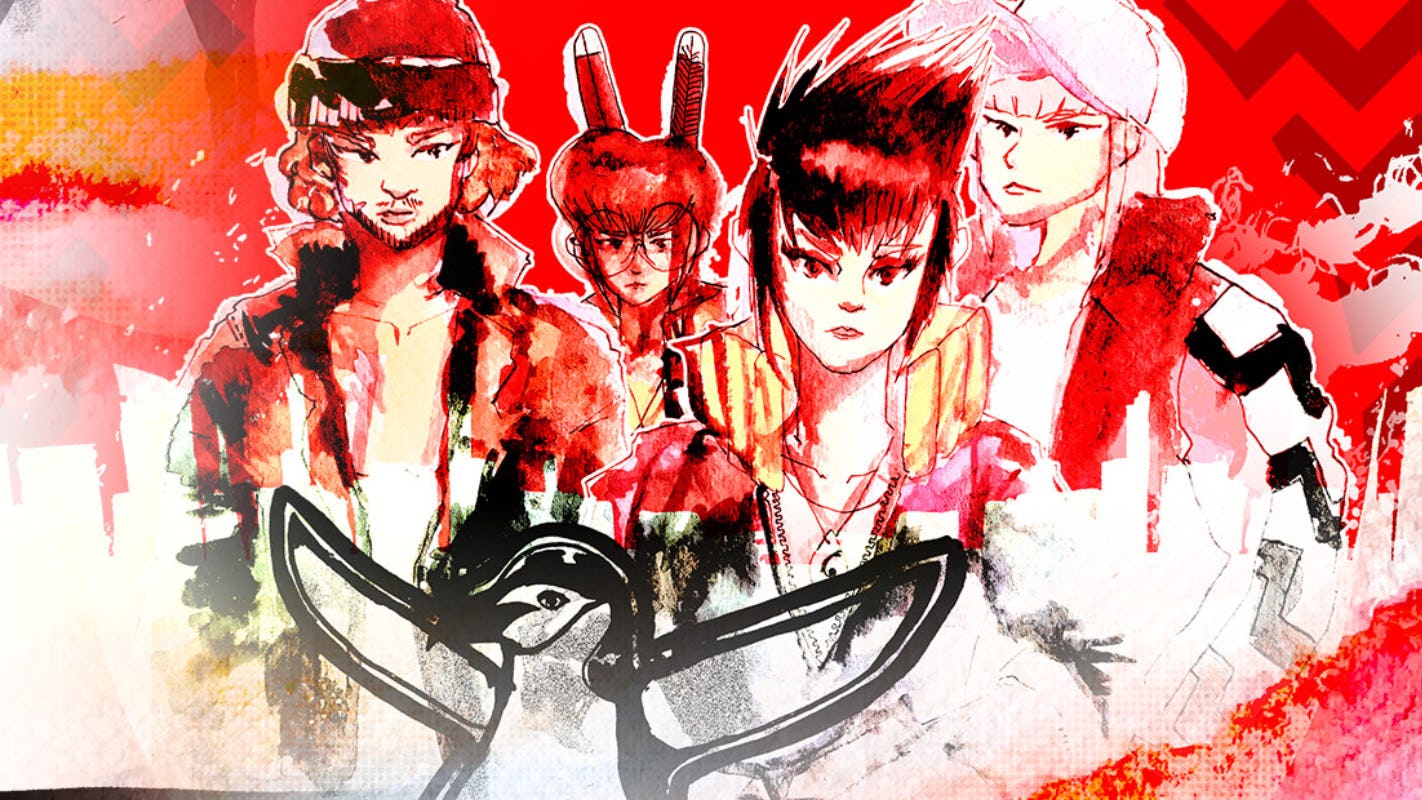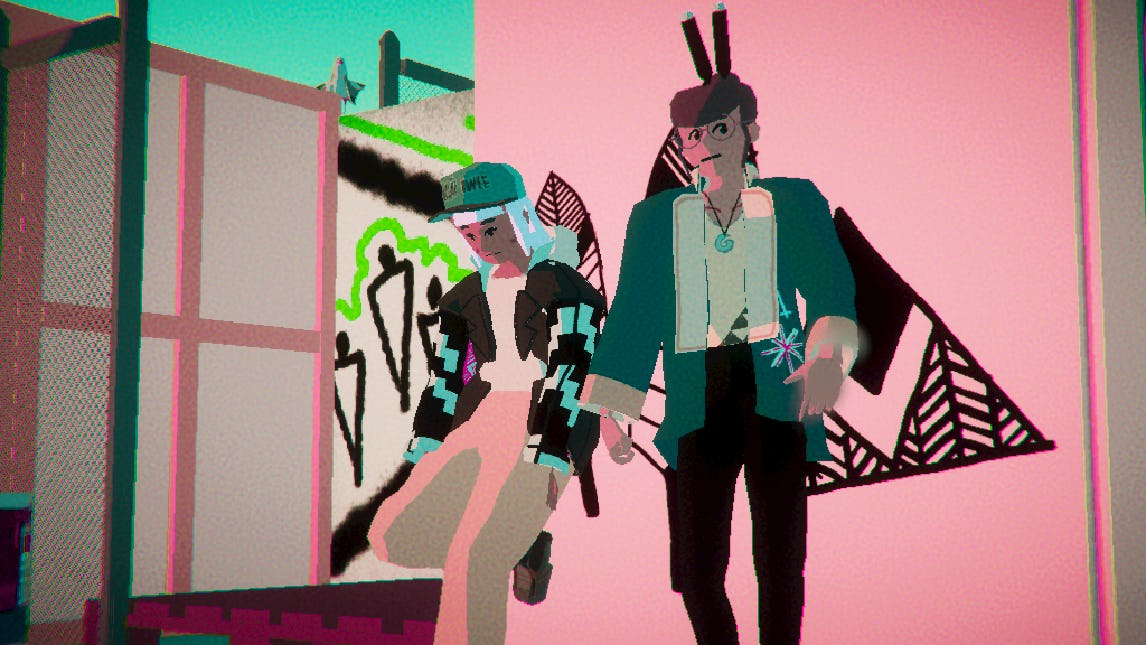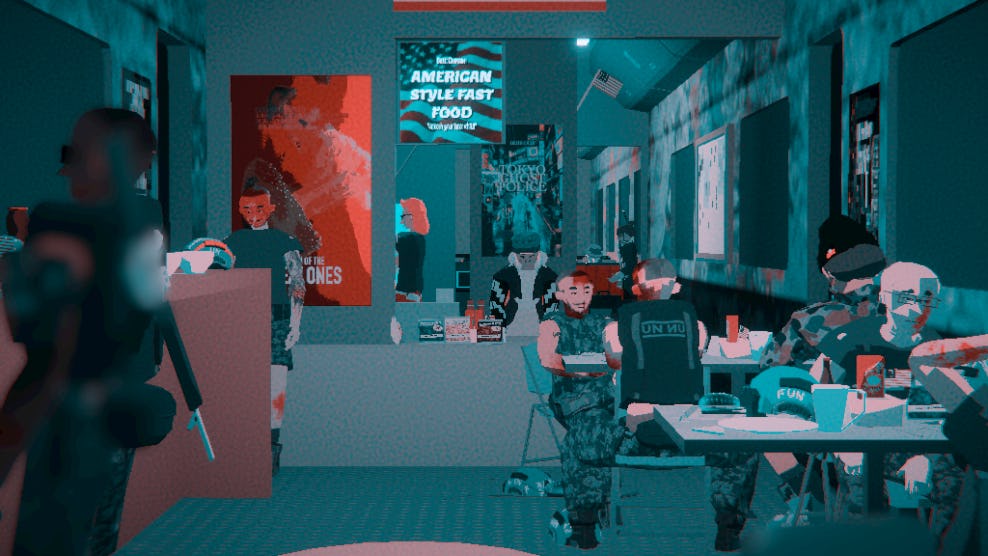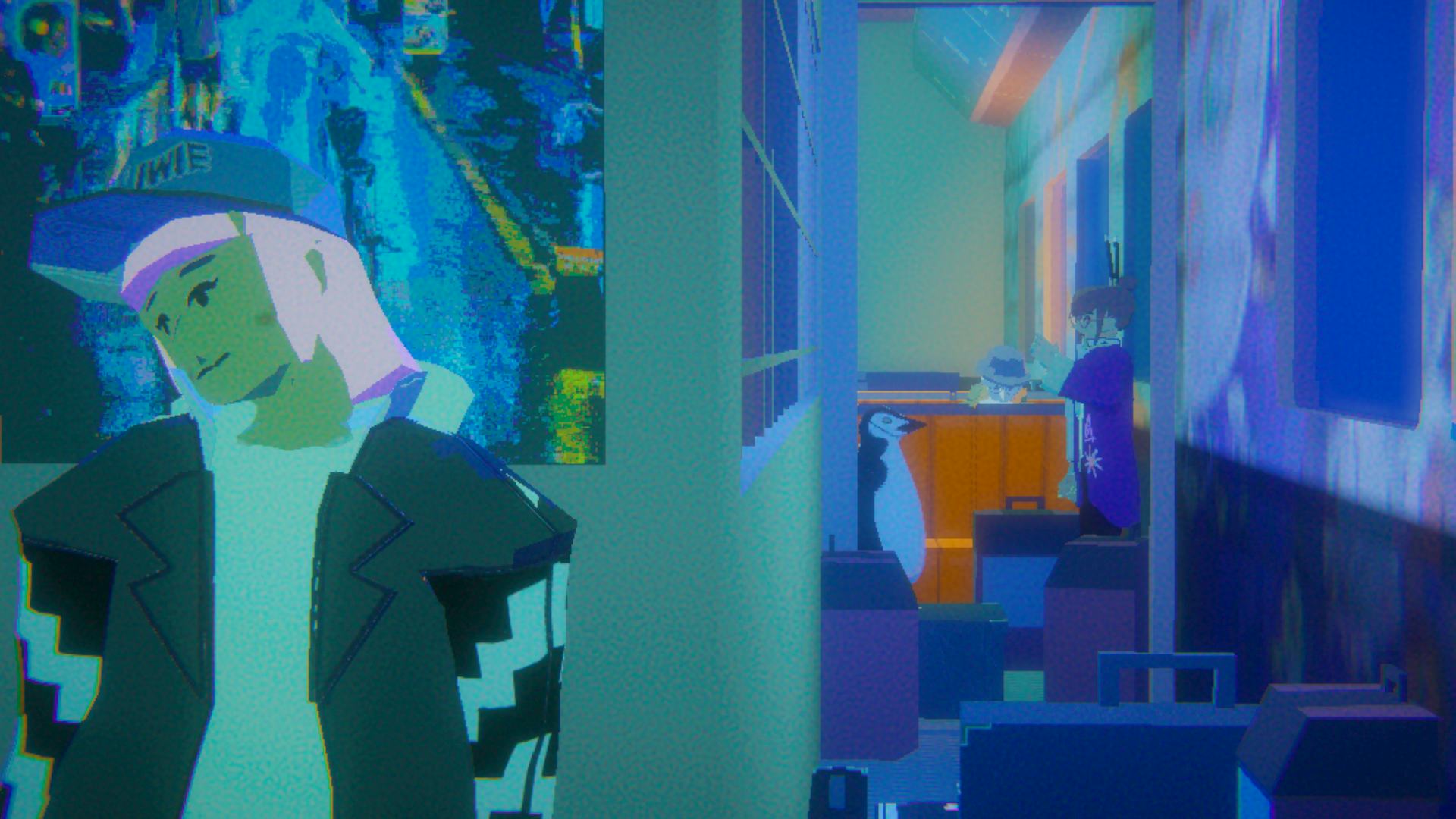
I’ve always been drawn to games about photography. The prospect of freezing the clock in a digital world, preserving a record of your journey through a place that never really existed, gives me a strange joy, just in the way that fiddling with knobs to align arcane parameters like aperture and focal distance does. Photo modes in games that aren’t explicitly about photography are captivating for a slightly different reason, giving you the chance to tune a moment to your liking, to participate in the act of art-making with the game.
Umurangi Generation isn’t that kind of photography game. Released on May 19, 2020, it landed in the relatively early days of a global health crisis, when we knew enough to be scared and had already spent a significant amount of time locked inside, but didn’t know much about how to respond to it beyond that. It felt plausibly apocalyptic, like the first scenes of a horror film before the world as we know it falls apart.

And it did fall apart, just not as dramatically as it seemed like it might at the time. The virus is still circulating, but instead of stay-at-home orders and mask mandates, we now live in a time of proposed mask bans which threaten to both make the world even less hospitable for disabled people and stamp down on our right to protest without being prosecuted for it. Fascism is resurgent the world over, entire fields of scientific research are being destroyed, and even the meager social safety net that ever existed in the United States is being torn out at the root. The world still feels like it’s ending, just more slowly this time.
Umurangi Generation felt unbelievably prescient when it launched, and it feels even more so now. Set in Tauranga, Aotearoa (or New Zealand in English), the game is suffused with the Māori culture of its creator, Naphtali Faulkner, which I’m frankly not qualified to analyze in any depth. The first word of its title, Umurangi, is a Māori word meaning red sky.

“I chose Umurangi Generation, you know, Red Sky Generation, because the idea was to talk about how our generation is coming of age at the moment having to deal with older generations destroying the Earth in front of us,” Faulkner told Vista Magazine in 2020. “And we can’t really do anything about it. We can go and protest, sure, but in terms of being the people who actually push the buttons, we’re limited in that space.”
Likewise, you have no power to affect the apocalypse in progress in Umurangi Generation. The ability to choose how you compose a shot, which lens and film to use, are the only small bits of control you can exert. Each level is another small, self-contained section of Tauranga, and your job is to document it. You receive a set of assignments at the start of each one as a timer begins ticking down. You’re here to take the photos assigned to you, and you get more cash if you complete them all within the time limit — a reminder that time truly is running out, and that even at the end of the world, you can’t slack on your deadlines.
The game’s environments and the photos you’re asked to take in them start out relatively mundane. You take a photo of a Union Jack, or a set of markers, or seven birds in a rooftop skate park. Soon, though, you’re sent into battlefields and crumbling cities, snapping photos of artillery weapons and enlistment posters. A looming crisis grows closer, yet you still need to finish your assignments, some charting the ever-approaching end and some continuing to document the mundane. Take a photo of a first aid kit. Take a photo of a cat. A bike. A face mask. A body bag.

You can’t save the world in Umurangi Generation. You can’t even change it. You just try to exist in it, making a record of what once was, never even knowing who it is that needs these photos or what good they’ll be to them. What’s the point of making art at the end of the world? I certainly don’t know, and Umurangi Generation doesn’t provide a feel-good answer either. All either of us can say is that it’s still worthwhile to make art, even when the ground feels close to swallowing us all up before anyone gets the chance to see it.
Photography is a way of making art in Umurangi Generation, but it’s also a way of seeing. Taking a photo won’t change the world, but it will make you see it more clearly. To find your subjects, you need to consider everything around you, sometimes changing your perspective either literally by climbing around the city or by rethinking what a request could mean. You need to focus, composing the right elements into a shot that satisfies your assignment’s conditions, even when it feels pointless. The world we know is fading, maybe faster than any of us realize. It’s impossible to know what to do about that, but if making art forces us to take notice as it’s happening, there’s still a reason to keep creating before we’re all destroyed.







